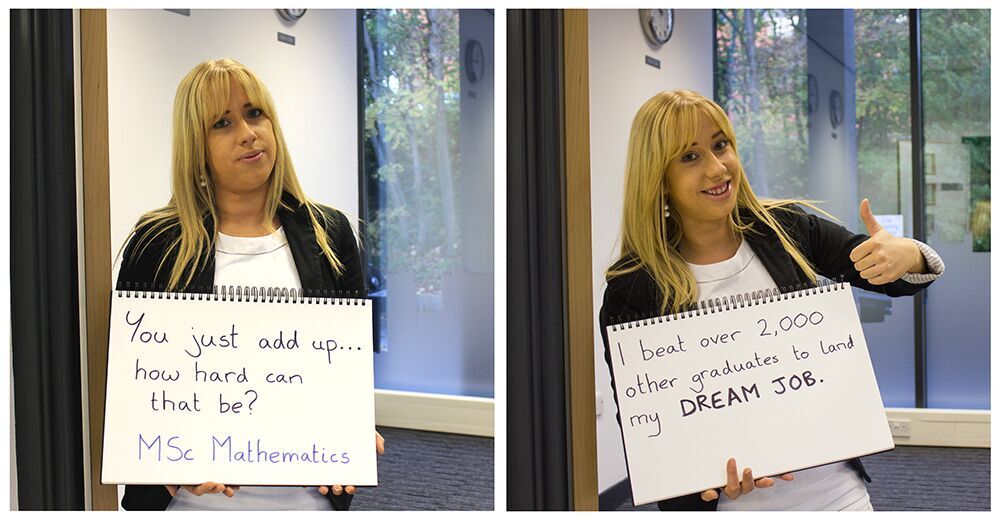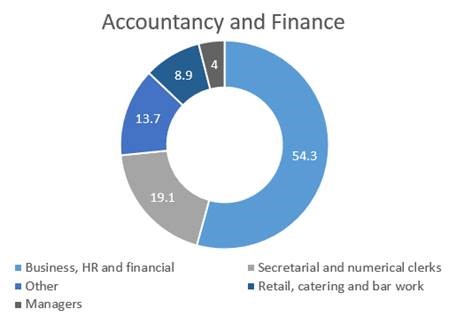Numerical Degrees: Perceptions vs. Reality
For years, there has been a stigma surrounding numerical degrees. A perception that mathematical and financial students are somehow “boring” compared to their arts or social science counterparts. It doesn’t end at university either, with these preconceptions continuing to haunt those moving into careers in accountancy and finance.
To challenge these traditional views, Spread Co, a leading financial broker, decided to investigate how prevalent these ideas still are. They interviewed recent maths, economics and accounting graduates and asked them to share their experiences. When asked what the most offensive thing their friends, family or colleagues had asked about their degree or career choice, the responses included, “Won’t you want to kill yourself doing that 9-5?” and “Are you really going to do that for the rest of your life?” The range of answers provided damning evidence that these stereotypes are still rife.
As well as reaffirming the perception that a career in the financial world is dull, the feedback also illustrated a lack of understanding of these jobs, with other questions faced including, “Don’t you just make the numbers up?” and “You just add up… how hard can that be?”
After gathering comments, Spread Co also asked the graduates to reply to the criticism with a proud achievement. The responses ranged from becoming the youngest partner in their company’s history and advising some of the biggest, most creative businesses in the world, to “hitchhiking across the Balkans” and “climbing Mt Kilimanjaro”.
This small sample of graduates showed that these antiquated opinions are not only misguided but outright wrong. So, what’s the reality, and how does this tie into employment?
Reality and employment
On the basis of this anecdotal evidence, it seems those that labelled our graduates “boring bean counters” have been proved massively wrong. Far from being passionless or dull, they’re all proud of both their work and social achievements. From an objective perspective as well, there are several statistical reasons why numerical degrees stand graduates in good stead for embarking on diverse and rewarding careers.
1. Employability
Numerical graduates are in demand and leave university well-equipped to move into a career of their choice. Individuals with qualifications in maths and business are among the most likely to be in full-time employment within six months of graduating. Business and administration graduates have an 85% of achieving this, while that figure rises to 86.5% for mathematical science alumni.
2. Earning potential
The earning potential that these degrees afford is considerable. While money doesn’t necessarily buy happiness, what it does often provide is the freedom to live more comfortably and spend more time doing the things you love, as Spread Co’s hitchhiking, mountain climbing graduates prove.
Economics, mathematics, business, management, accounting and finance are some of the best degrees to possess when it comes to landing a high starting salary. Economics and maths graduates, in particular, get paid 23% and 11% respectively more than average, which represents a potential head start of almost £5,000 for economics alumni, who normally earn around £26,600 straight out of university.
3. Career options
Accounting, finance, business, management and mathematics graduates are all most likely to end up in the business, HR and finance sector, with figures ranging from 24% to 54%. While more theoretical degrees like maths often lead to further study (23%), other more vocational courses like accountancy are often tailored towards moving straight into employment.
Unlike other top-earning courses, like dentistry and medicine, these numerical and business focused degrees can prepare graduates for a wide range of careers. These can include, but are certainly not limited to: accountancy, economics, actuarial science, banking, insurance, management, marketing, retail, logistics, human resources, teaching and statistics.
The verdict
Unfortunately, it’s clear that the archaic stereotype of numerical graduates is still just as prevalent as ever. However, the graduates surveyed by Spread Co show that they are far from the dull misconceptions held by their friends and colleagues. Instead, they are hitchhiking, mountain climbing success stories who have moved into exciting and competitive careers.
In addition to dispelling this negative stereotyping, graduates from maths, accounting and business courses have among the best employability rates, earning potential and job diversity, illustrating that a degree and career in these areas is a shrewd investment that’s anything but boring.






